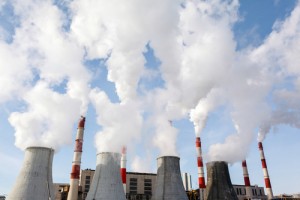 Civil and Environmental Engineering Professor Jamie Schauer is traveling the country to study air quality and advocate for how air pollution negatively affects human health. Part of his campaign involves highlighting the importance of collaborative research and development between environmental engineers and medical professionals in order to raise awareness in the science and medical communities about how air pollution affects specific health problems.
Civil and Environmental Engineering Professor Jamie Schauer is traveling the country to study air quality and advocate for how air pollution negatively affects human health. Part of his campaign involves highlighting the importance of collaborative research and development between environmental engineers and medical professionals in order to raise awareness in the science and medical communities about how air pollution affects specific health problems.
Air quality and pollution are crucial concerns for public health, particularly regarding the airborne mix of microscopic solid particles and liquids from several different sources. Particulate matter in the air is different from place to place, and can be caused by a series of factors. “I believe that different components of particles are what drive different pathways of disease,” explained Schauer.
Schauer is dedicated to identifying these pathways, but he believes that in order to accomplish this, more collaboration between environmental engineers and medical professionals is needed. Therefore, he has recently established a partnership with the UW-Madison transplant surgeon Joshua Mezrich, with the purpose of evaluating the impact of pollution on patients who have received a lung transplant.
Mezrich decided to work on the project since not much is currently known about the connection between lung transplant success and air pollution. However, previous research has demonstrated that lung transplant patients who live near major roads have a higher risk of developing bronchiolitis obliterans syndrome, a condition in which the body’s immune system attacks the new lung. The surgeon believes that continued research that builds upon these findings will ultimately benefit the organ transplantation community.
“Lung transplants do a lot worse,” said Mezrich. “In five years, half of the grafts will be lost. There’s something very different about lungs, and maybe part of that is this interface with the environment, and maybe it’s something else.” However, the researcher also noted that it is difficult to dissociate conditions and causes regarding lung transplant rejections, since patients typically already have their immune systems damaged.
[adrotate group=”3″]
As part of their research project, the two investigators will examine if particulate matter has a unique way of setting off the immune system, and will use Mezrich’s expertise in understanding organ transplant tolerance and Schauer’s methods for chemically analyzing samples of air pollution in their studies.
In addition to studying the processes of correlation between the particulate matter to an autoimmune response, Mezrich also hypothesizes that there may be more subtle and indirect consequences from pollution on transplant tolerance. For instance, the repeated inhalation of foreign particles may put the immune system into a state of alert, provoking it to increase the likelihood of an attack when confronted by a new organ.
“It would make sense to me that, say, if you’re caught in a house fire or exposed to a really high level of particulate matter pollution, you’d want your immune system to get activated,” explained Mezrich. “But I could see over time, if you’re constantly exposed to that, it could cause a scenario where you have a lot of inflammation and it could become pathologic.”
“A lot of people I work with in the medical field have never considered environmental conditions before, have never worked with an engineer before,” Schauer said. “I’d like to be able to present it to transplant people and say, ‘look, pollution is causing all these bad things,’ but to Jamie that represents so many things that can change over time. Even if you find something at the cellular level, what are people really being exposed to?”
A recent study from the EU-funded European Study of Cohorts of Air Pollution Effects (ESCAPE) project has also revealed that despite the costly and wide-ranging measures to curb pollution and carbon emissions throughout the EU, exposure to air pollution is increasingly deteriorating the lung health of the average adult European citizen. The scientists responsible for the study concluded that, despite lowered levels of air pollution in Europe, its negative effects are still being seen in adults and children alike, as shown in previous research.

